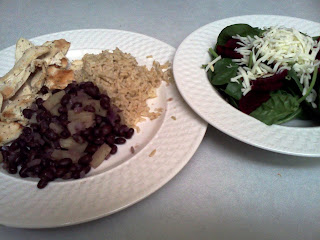 | ||
| My backpack is always "Hydration Compatible" |
Climbing mountains in the most severe conditions, pushing your mind and body to the limit on a daily basis, for me the ultimate test of performance and overall toughness comes courtesy of Mother Nature.
Whether you are pushing your limits in the backcountry or in the gym, your body can lose as much as 4% of your entire body weight in the form of sweat potentially causing severe dehydration and hyperthermia.
Proper hydration is critical before, during and after your next trip into the backcountry or gym in order to maintain normal hydration levels, circulation and natural cooling of the body. As the body sweats, your blood becomes less fluid due to water loss, subsequently causing the blood to become thicker, therefore increasing the workload of the heart, which could potentially result in a heart attack.
Proper hydration is critical in the prevention of dehydration, hyperthermia and even heart attack.
What to consider before entering the field or gym
Outside Temperature- The higher the outside temperatures are the more your body is going to sweat, the body’s natural cooling mechanism causing higher levels of water loss within the body that needs constant replenishment.
Hydration Level- If you are already in a dehydrated state, you are in the great danger of suffering from severe dehydration or hyperthermia. Before your next trip into the field or to the gym, drink a minimum of 96 ounces or three quarts of water per inactive day and during days of high activity, double that amount or an equivalent of 192 ounces or six quarts of water per day. In the morning before you take your first steps in the morning, be sure to consume an additional 2-3 cups of water to boost your hydration level.
Relative Humidity- When the air is saturated with moisture, the body loses its ability to naturally cool itself off by evaporating sweat efficiently therefore causing the body’s internal temperatures to potentially reach dangerous levels causing hyperthermia. Water intake is critical in humid environments.
Did you know…
If you are thirsty, your body is already in a state of dehydration.
Thirst can be mistaken for hunger. Mild to moderate dehydration can cause sugar and food cravings, especially in the evening, so before you pick up a snack, drink a large glass of water.
Mild dehydration may slow your metabolic rate by as much as 3-5%
80% of people suffering from dehydration have increased back & joint pain.
Dehydration can cause daytime fatigue, decreased motor skills, concentration and memory retention.
Dehydration can be attributed to an increased risk of colon, breast & bladder cancer.
Drink comparison
Drink Sugar Carbs Calories
W.A. Hydrate & Recover 0 6 27
COKE 27 27 100
ORANGE SODA 34 35 130
CLUB SODA 0 0 0
GATORADE 14 14 50
G2 7 7 25
POWERADE ZERO 0 0 0
SOBE ELIXIR 26 26 100
SOBE LEAN 0 1 5
APPLE JUICE 25 27 110
FRUIT2O 0 0 0
MINUTE MADE LEMONADE 27 28 100
CASCADE ICE 0 0 2
LIPTON ICE TEA 21 21 80
LIPTON UNSWEETENED ICE TEA 0 0 0
GLACEAU VITAMIN WATER 13 13 50
SNAPPLE ANTIOXIDANT WATER 12 12 50
CRYSTAL CLEAR VIT WATER 0 0 0
PROPEL ANTIOXIDANT WATER 2 2 10
PLAIN WATER 0 0 0
1 SUGAR CUBE= 1 PACKET OF SUGAR= 1 TEASPOON OF SUGAR =
4 GRAMS SUGAR =16 CALORIES
Other FACTS:
1) One can of soda per day = additional 15 lbs per year
2) Start drinking soda at 2 years old (1 can per day) = 250 lbs as a teen
3) One 12 oz soda per day increases the risk of obesity by 60%
4) Average Recommended Daily Allowance for “added sugar” (at an 1800 calorie per day intake) = 6 tsp











